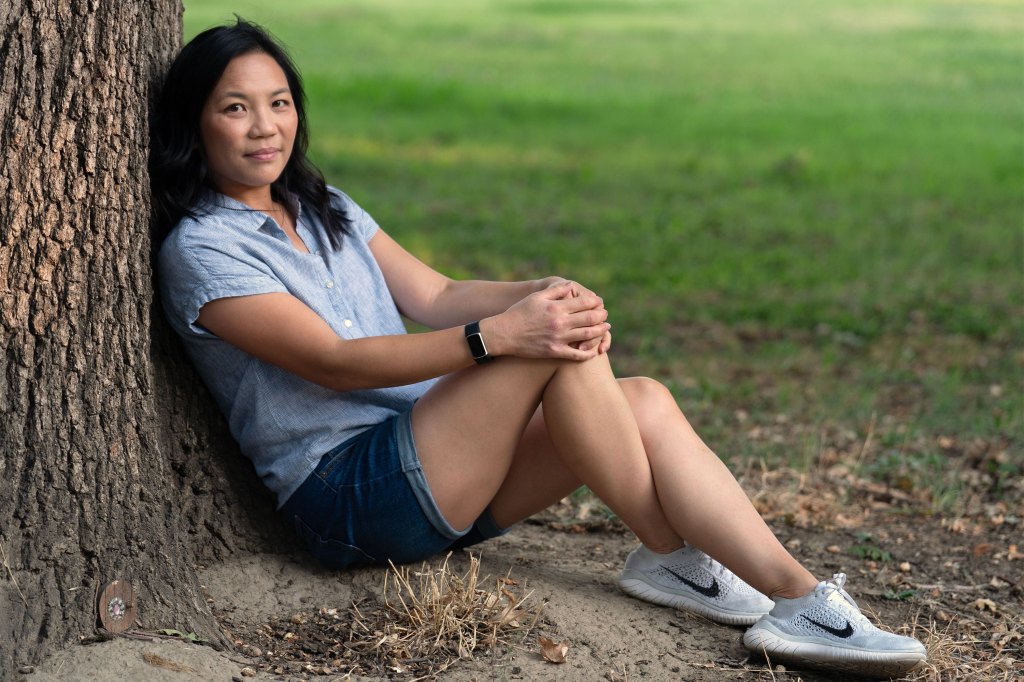Breast Cancer Rises Among Asian American and Pacific Islander Women
11 months 1 week ago
california, Multimedia, Race and Health, States, Cancer, Women's Health
Medical News, Health News Latest, Medical News Today - Medical Dialogues |
Intake of aquatic plant Mankai may reduce post-meal sugar levels in diabetics, suggests study
11 months 1 week ago
Diabetes and Endocrinology,Diabetes and Endocrinology News,Top Medical News,Latest Medical News
Health officials report first case of Oropouche virus, aka ‘Sloth Fever,’ confirmed in Kentucky - User-generated content
- Health officials report first case of Oropouche virus, aka ‘Sloth Fever,’ confirmed in Kentucky User-generated content
- Canada issues new travel advice as Oropouche virus spread by bug bites sparks outbreaks in Cuba and South America Toronto Star
- What Is the Oropouche Virus Found in US Travelers to Cuba? VOA Learning English
- Canada issues new travel advice amid spread of bug-transmitted disease CTV News
- Canada warns pregnant travellers of ‘risks’ from Oropouche fever Global News Toronto
11 months 1 week ago
First case of Oropouche virus, aka ‘Sloth Fever,’ confirmed in Kentucky - Kentucky Today
- First case of Oropouche virus, aka ‘Sloth Fever,’ confirmed in Kentucky Kentucky Today
- What Is the Oropouche Virus Found in US Travelers to Cuba? VOA Learning English
- Canada issues new travel advice as Oropouche virus spread by bug bites sparks outbreaks in Cuba and South America Toronto Star
- Canada issues new travel advice amid spread of bug-transmitted disease CTV News
- Canada warns pregnant travellers of ‘risks’ from Oropouche fever Global News Toronto
11 months 1 week ago
Cuba faces uphill battle as Oropouche virus spreads - AOL
- Cuba faces uphill battle as Oropouche virus spreads AOL
- What you need to know about 'sloth fever' after 21 cases confirmed among US travelers ABC News
- What Is the Oropouche Virus Found in US Travelers to Cuba? VOA Learning English
- Florida State Health officials report 10 cases of sloth fever within the past month WPBF West Palm Beach
- 'Sloth Fever' Virus Is Spreading. Here’s What You Need to Know about Oropouche Scientific American
11 months 1 week ago
What Is the Oropouche Virus Found in US Travelers to Cuba? - VOA Learning English
- What Is the Oropouche Virus Found in US Travelers to Cuba? VOA Learning English
- What to know about the Oropouche virus, also known as sloth fever The Associated Press
- Florida State Health officials report 10 cases of sloth fever within the past month WPBF West Palm Beach
- 'Sloth Fever' Virus Is Spreading. Here’s What You Need to Know about Oropouche Scientific American
- Sloth Fever: What To Know As Potentially Dangerous Oropouche Virus Detected In U.S. Forbes
11 months 1 week ago
Mpox patients lack medicine, food, in east DR Congo hospital - Reuters.com
- Mpox patients lack medicine, food, in east DR Congo hospital Reuters.com
- Mpox outbreak: DR Congo faces severe medicine shortages and overcrowding Africanews English
- Mpox (monkeypox) and children UNICEF
- Another worldwide alert – mpox is spreading. Here are three steps we can take to head it off | Gordon Brown The Guardian
- Mpox is spreading rapidly. Here are the questions researchers are racing to answer Nature.com
11 months 1 week ago
Caricom to equip youth practitioners and leaders with mental health first-aid skills
11 months 1 week ago
Health, PRESS RELEASE, Youth, caricom, caricom mental health first aid, caricom single market and economy, caricom youth ambassadors, climate change and health project, csme, mhfa, michele small-bartley, paho, pan american health organisation
Mpox outbreak: DR Congo faces severe medicine shortages and overcrowding - Africanews English
- Mpox outbreak: DR Congo faces severe medicine shortages and overcrowding Africanews English
- Mpox vaccines to arrive in DR Congo in next few days, WHO says Reuters.com
- Mpox (monkeypox) and children UNICEF
- Another worldwide alert – mpox is spreading. Here are three steps we can take to head it off | Gordon Brown The Guardian
- Experts blame Africa's mpox outbreaks on neglect, world's inability to stop epidemics VOA Asia
11 months 1 week ago
Heart attacks on the rise in young people - Trinidad & Tobago Express Newspapers
- Heart attacks on the rise in young people Trinidad & Tobago Express Newspapers
- Surge In Heart Attack Risk Among Youth: What’s Driving It | Health Live ABP Live
- Heart attack cases on the rise among young people in Himachal Pradesh The Tribune India
11 months 1 week ago
Health Archives - Barbados Today
Districts in Christ Church and St George to be fogged
11 months 2 weeks ago
Health, Local News, Alerts, Sponsored
Public Health assures there are no cases of monkeypox in the country
11 months 2 weeks ago
Health, Local
Health Archives - Barbados Today
New sheltered workshop offers hope for psychiatric patients
11 months 2 weeks ago
Health, Local News, News

